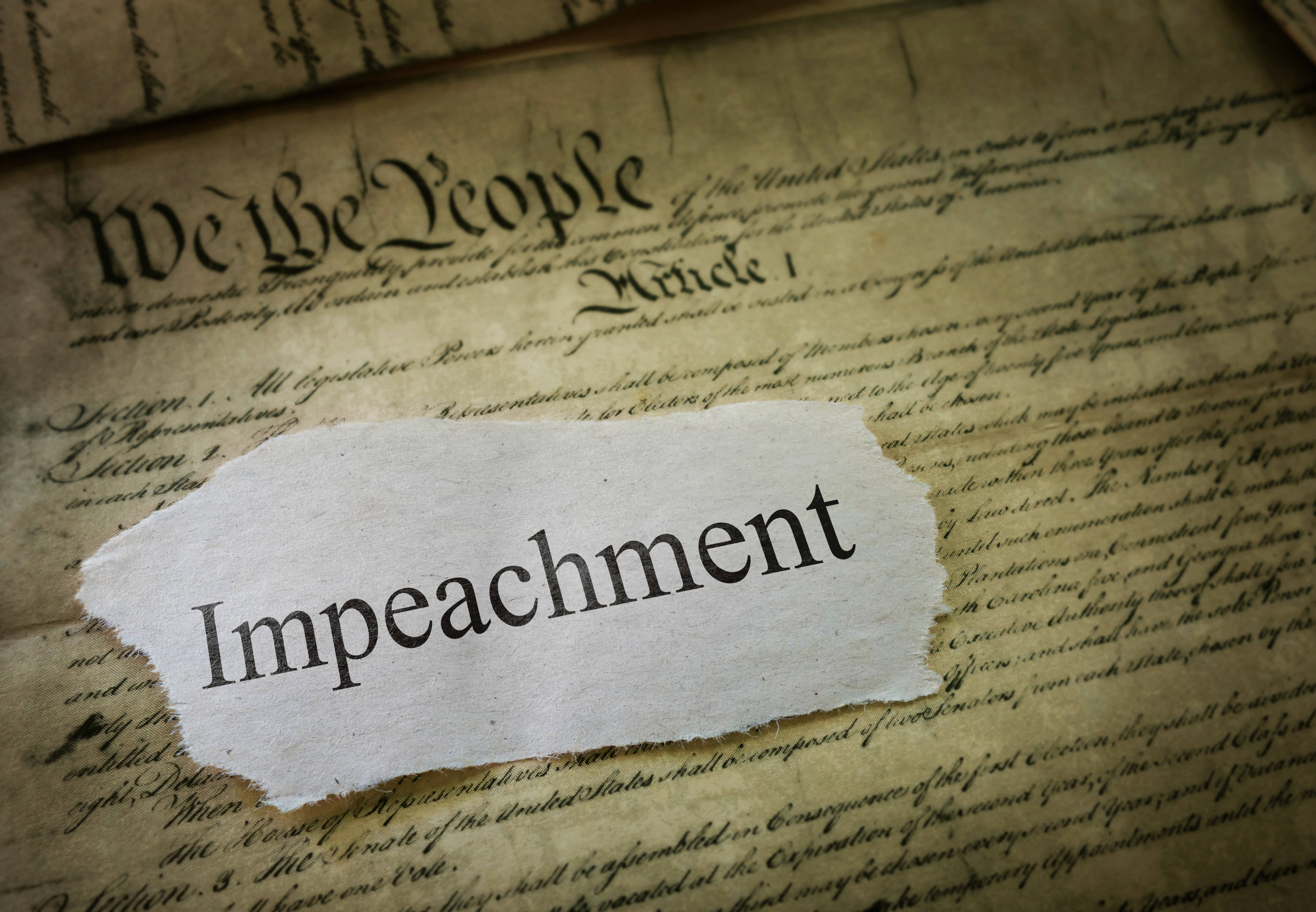January 15, 2021
The Senate Retains Authority to Try Donald Trump After He Leaves Office
ACS Faculty Advisor and Professor of Law, Georgia State University College of Law

The House of Representatives has impeached President Trump. As early as next week, the Senate will convene a trial of the impeachment. That trial will fulfill the Senate’s duty as the constitutional repository of the “sole power to try all impeachments.”
In a post published here on Wednesday, I wrote that Trump’s “second impeachment raises no interesting procedural or substantive issues (except maybe whether the presiding officer at the impeachment trial of a former President is the Chief Justice or the Vice President). I stand by the statement, but that apparently does not mean Trump’s defenders will not stretch and contort to raise objections. Witness yesterday’s Washington Post, which carried an op-ed by J. Michael Luttig, formerly a judge on the Fourth Circuit U.S. Circuit Court of Appeals, asserting that the Constitution “clearly” establishes that the Senate may not hold an impeachment trial of President Trump after he leaves office. Judge Luttig could not be more wrong.
The Constitution, in fact, is silent on the question of who is subject to impeachment. Judge Luttig cites the clause in Article II providing that “[t]he President, Vice President and all civil Officers of the United States, shall be removed from Office on Impeachment for, and Conviction of, Treason, Bribery, or other high Crimes and Misdemeanors.” All this clause “clearly” establishes is a mandatory punishment (removal from office) for current officers. It does not even purport to address whether the impeachment power extends to former officers, let alone whether an officer who is subject to impeachment proceedings may evade punishment by leaving office. The clauses that define the ambit of the impeachment power are found in Article I and make no mention of the limitation Judge Luttig reads into the Constitution’s text. Article I assigns to the House “the sole power of impeachment” and to the Senate “the sole power to try all impeachments.” Nothing in this assignment of authority excludes former officers.
While the Constitution’s text may be ambiguous, the original understanding and subsequent congressional practice emphatically establish that a former officer is subject to the Senate’s “sole power” to try impeachments. As Alexander Hamilton makes clear in Federalist No. 65, Great Britain provided “[t]he model from which the idea of this institution has been borrowed.” It was firmly established in Britain at the time of the founding that former officers were subject to impeachment. Indeed, the British impeachment that most informed the framers’ thinking about the impeachment power was the impeachment of Warren Hastings for improprieties as the Governor-General of Bengal. Hastings had been out of this office for two years before his impeachment by the House of Commons. Moreover, at least two states – Virginia and Delaware – had established that their impeachment power extended to former officers. Against this background, it is particularly telling that there is no indication in the Federalist Papers or in any other significant commentary from the founding era indicating that the framers intended the new Constitution to deviate from this baseline understanding.
Congress has also expressly addressed this question and resolved it in favor of the original understanding. In 1876, the House drafted articles of impeachment against President Grant’s Secretary of War, William Belknap, but Belknap resigned before the House could vote on the articles. The House debated whether Belknap’s resignation deprived the House of jurisdiction. After the debate, the House voted to impeach Belknap, implicitly rejecting the argument that it lacked jurisdiction. The Senate also took up the issue and voted 37-29 that Belknap’s resignation did not deprive it of jurisdiction. This resolution affirmed the apparent understanding of Congress in 1797 when the House impeached Senator William Blount. Both the House prosecutor and Senator Blount’s defense lawyer agreed that Blount’s resignation did not deprive the Congress of jurisdiction to impeach and try the senator.
The Constitution’s structure also confirms the original understanding that former officers may be impeached. If the only punishment for impeachment and conviction were removal from office, that would strongly indicate that the power applies only to current officers, since it would be futile to convict someone who holds no office to be removed from. But removal is not the only constitutionally-sanctioned punishment. The Constitution also authorizes the Senate to disqualify a person convicted from ever holding federal office. An officer who is convicted of accepting bribes could avoid this disqualification by the simple expedient of resignation. The impeachment of President Trump vividly illustrates the point. He stands impeached for inciting sedition and waging war on our democracy. Disqualifying him from ever holding office again would be anything but futile.
Judge Luttig apparently recognizes just how weak his argument is. He acknowledges the Belknap precedent yet offers no distinction. Instead, he suggests the Supreme Court will have to decide what to make of it. But that too is wrong. The Supreme Court has held that the Constitution assigns the power to try impeachments exclusively to the Senate and that this assignment precludes the Court from involvement. When Judge Walter Nixon challenged his Senate conviction, the Supreme Court unanimously held that his claim raised a political question, which the Court could not resolve because the Constitution commits the resolution of the content of the Senate’s power to try all impeachments exclusively to the Senate itself.
It is perhaps a testament to just how indefensible President Trump’s conduct is that his defenders must resort to specious procedural arguments. The Senate should not be fooled. Its authority to try President Trump even after January 20 is overwhelmingly clear. In fact, it is the Senate’s constitutional duty to hold a trial.
Neil Kinkopf is a professor of constitutional law at Georgia State University. He previously served as counsel to then-Senator Joe Biden during the impeachment trial of President Bill Clinton.




